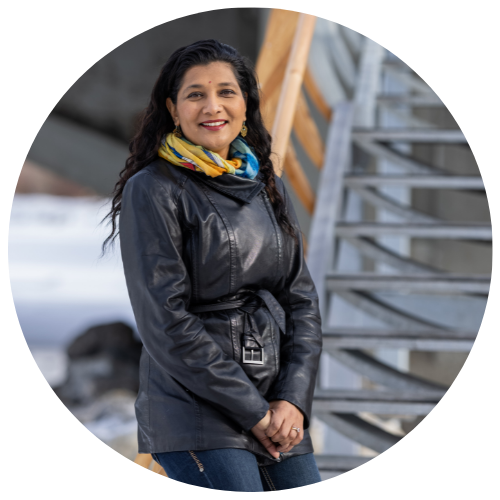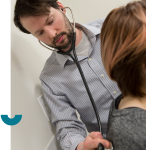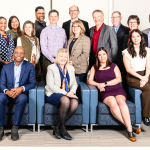Share
Systemic Discrimination in Newcomer Health
Back to MessengerBy Anila Umar Lee Yuen, President and CEO of the Centre for Newcomers
Read time: 2 minutes
From December 2020 to July 2021, the Calgary East Zone Newcomers Collaborative focused on helping some of Calgary’s hardest-hit communities get through the pandemic. The collective of 17 organizations, along with partners at all three levels of government and AHS, offered COVID-19 relief to over 50,000 residents of east Calgary through the Calgary COVID-19 Care Table.
Throughout the pandemic, the rates of COVID-19 in upper northeast and lower northeast Calgary had consistently been the highest, while vaccination rates remained the lowest. These low vaccination rates were not due to hesitancy, but rather, systemic barriers to health care and social services within the community, such as shiftwork, close living quarters, unreliable transportation, and lack of access to online and telephone booking systems, which were only exacerbated during the pandemic.
The Calgary COVID-19 Care Table took action to address these barriers. The group provided multilingual crisis support in residents’ preferred language. They also organized a range of services for community members, including food hampers, income support, employment services and mental health counselling, allowing people to remain isolated and stop the spread of COVID-19. Since the beginning of June, walk-in, no-appointment-necessary vaccine outreach clinics have been offered in different community hubs throughout east Calgary. Transportation was provided for those who needed assistance getting to the clinic and children were welcome, reducing child care barriers. Volunteers with international medical graduate degrees were available to answer questions in patients’ first languages. Although interpreters and third parties are helpful when providing language services, first-language support by trained healthcare professionals is crucial to ensuring access for newcomers and racialized groups in Alberta. Finally, the clinics were set up in places frequented by community members: faith-based organizations, community centres and grocery stores.
By the end of July 2021, northeast Calgary, a former hot spot for the virus, had the lowest rates of COVID-19 in the city and was comparable to other parts of the city in vaccine uptake. This achievement was possible because the Calgary COVID-19 Care Table addressed systemic, and often neglected, barriers to health care and social services within the community.
Language plays a critical role in connecting community members to healthcare supports. Ensuring easily-accessible first-language services offered by trained professionals is an easy and cost-effective approach to reducing systemic barriers in health care for newcomers and racialized communities in Alberta.
 |
Anila Umar Lee Yuen, is president and chief executive of the Centre for Newcomers and co-chair of the provincial Calgary COVID-19 Care Table. For more information on this collaborative, visit www.centrefornewcomers.ca/eastzone. |
























Comments for this post are now closed. If you would like to share your feedback on this topic, please email support@cpsa.ca.